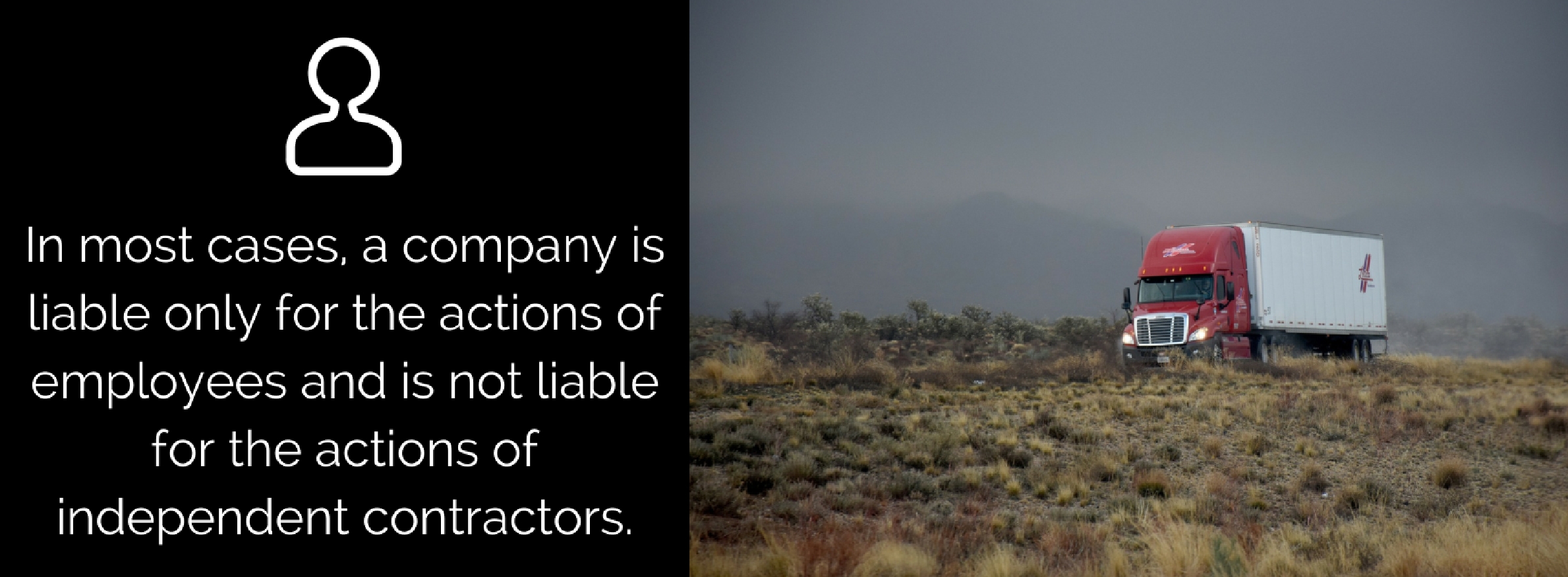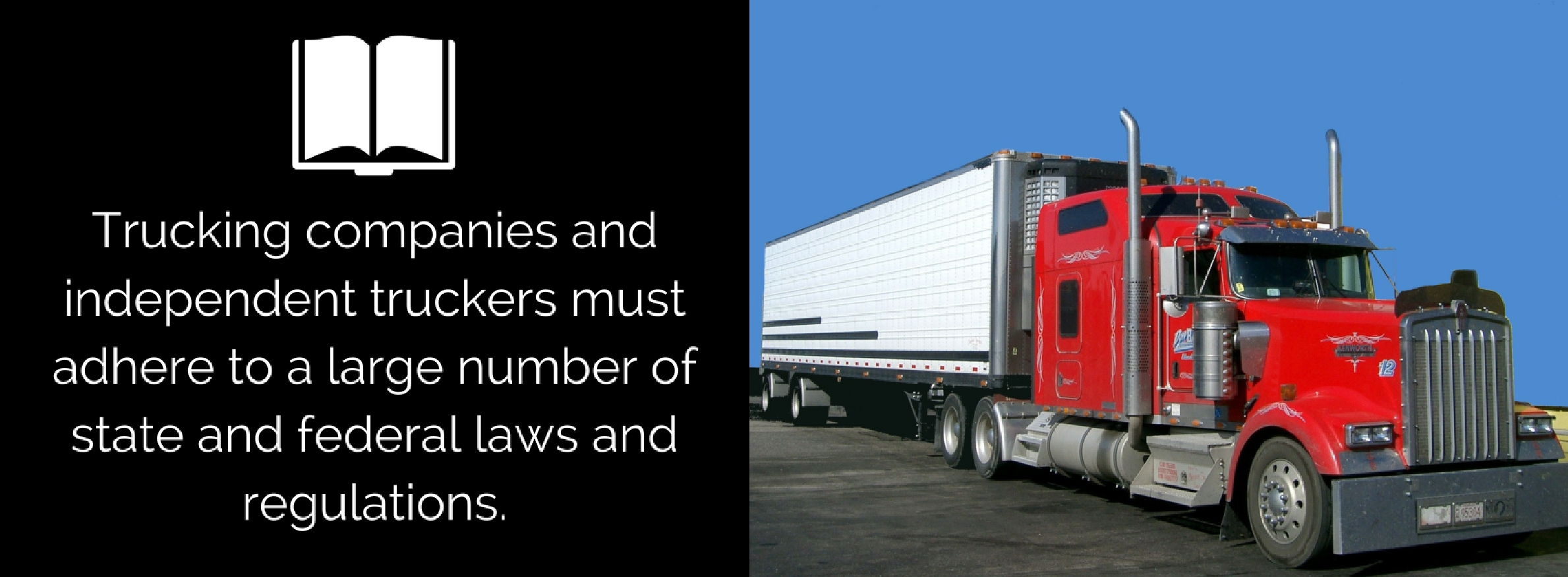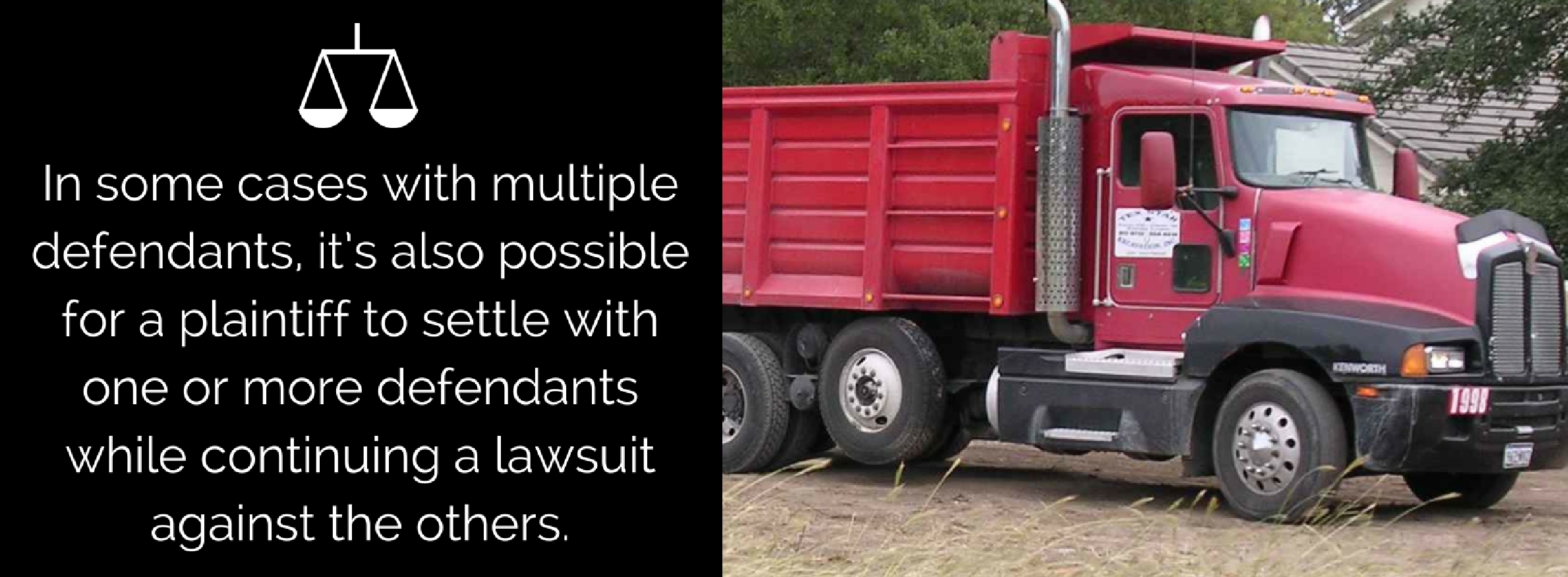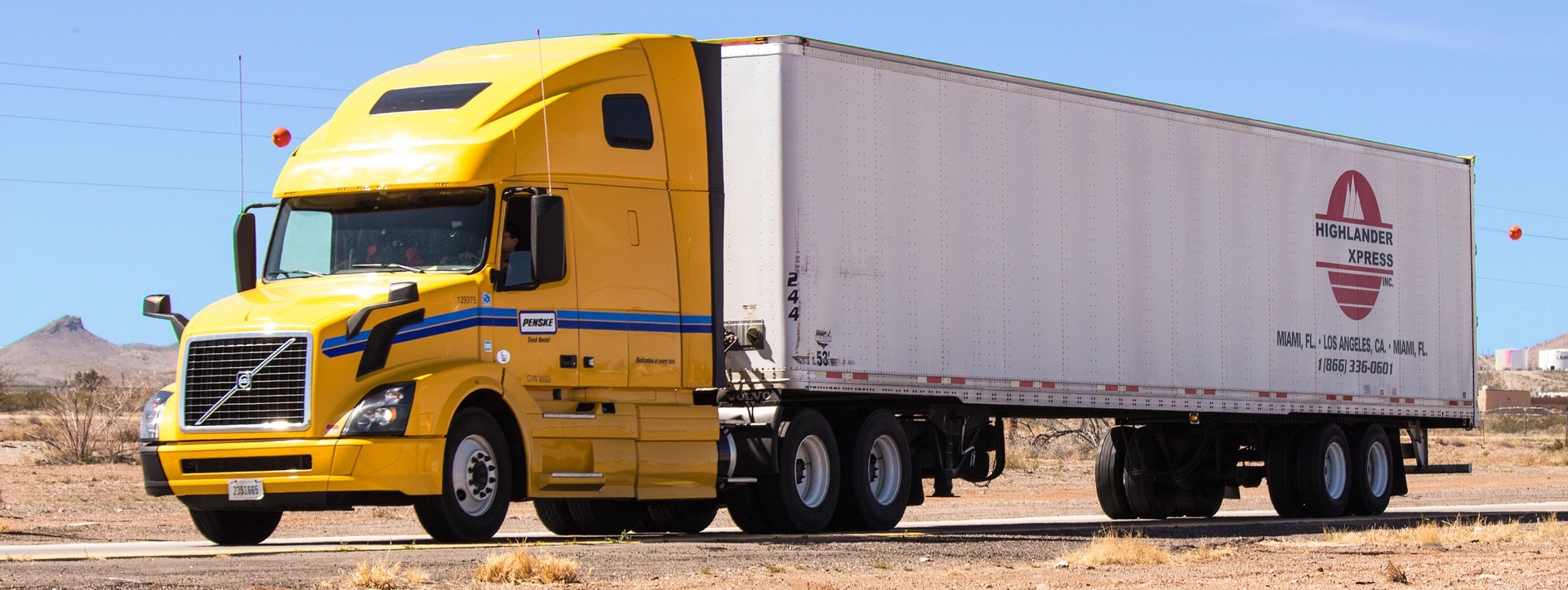Commercial trucks carry essential goods and products to every city and town in the United States. While these big trucks are integral and essential to the U.S. economy, they also pose substantial risks to innocent drivers and their passengers. A total of 3,852 people died in large truck crashes in the U.S. in 2015. Thousands more sustained serious injuries. After an accident involving a commercial truck, even if the truck driver was clearly at fault, it’s often difficult to determine who is legally liable for the damages.

While this is a general introduction to liability and truck accidents in Illinois, if you are injured in a truck accident in this state, you’ll need to consult an experienced personal injury attorney for legal advice regarding the specifics of your own situation. Chicago personal injury attorney Joseph M. Dooley has advised and successfully represented injury victims for more than 25 years. He can provide the advice – and if necessary, the legal representation – that you’ll need if you are injured in an accident with a large commercial truck in this state.
So how is liability determined after a truck crash? Can the trucking company – or some other party – be held liable for the negligence of a truck driver? In some cases, the answer is yes. Under a legal principle known as “respondeat superior” (Latin for “let the superior answer”), sometimes a trucking company can be liable for a driver’s negligence, as long as the negligence was unintentional and happened within the scope of the driver’s employment.
WHEN DOES “RESPONDEAT SUPERIOR” APPLY?
Respondeat superior transfers or imputes an employee’s legal liability to his or her employer, as if the company itself had committed the negligent act. But whether the principle of respondeat superior applies in a particular truck crash will depend on a several factors:
- Was the driver an independent contractor or an employee of the trucking company?
- Did the negligence and collision happen “within the scope” of the driver’s employment?
- Was the negligent behavior intentional or unintentional?
In most cases, a company is liable only for the actions of employees and is not liable for the actions of independent contractors. Thus, if a truck driver injures someone and the driver is an independent contractor, respondeat superior probably will not apply and the company will probably not be held liable. If a driver uses his or her own truck, has his or her own liability insurance, and is paid only for services rendered – no taxes are withheld and no benefits are paid – the truck driver is probably an independent contractor.

While it’s usually easy to distinguish an employee from a contractor, if the driver is an employee, precisely defining the “scope of employment” is usually more difficult. A number of factors must be considered including the driver’s job description, the time, nature, and location of the driver’s behavior, the amount of freedom and personal discretion a driver has to perform his or her duties, and the intention of the driver at the time of the behavior in question.
These two examples will help. If a truck driver making a delivery collides with your automobile or SUV, the employer would typically be liable for any injuries since the driver acted within the “scope” of his or her employment. But if the driver leaves work, drives the truck to go see a movie, and crashes into your automobile or SUV while turning into the theater’s parking lot, a good case can be made that the trucking company has no liability because the driver was acting outside the scope of his or her employment.
WHAT IF A DRIVER INJURES SOMEONE INTENTIONALLY?
While a company may be liable for accidents caused by employees, a company usually is not liable for an employee’s intentional wrongdoing. If a truck driver intentionally hits a specific person – in an act of road rage, or as a hate crime, for example – the company will probably not have liability. In such a case, once again, a driver was acting outside the scope of his or her employment.
WHAT IF THE DRIVER VIOLATES THE LAWS APPLYING TO THE OPERATION OF A TRUCK?
Trucking companies and independent truckers must adhere to a large number of state and federal laws and regulations. A driver’s hours, the amount of weight a truck can carry, and the kind of training a driver must have are just some of the matters governed by state and federal law. If someone is injured by a truck driver’s negligence, the direct violation by the driver or company of a law or regulation is powerful evidence in favor of the victim, increasing the chances that a victim’s lawsuit will prevail or be favorably settled out of court.

Obviously, in any personal injury lawsuit, a plaintiff (the injury victim) can only receive a settlement or jury verdict that the negligent party (the defendant) is actually able to pay. The higher minimum policy limits placed on the owners and operators of large commercial trucks make it more likely that the injured victim of a negligent truck driver will actually receive the full compensation that he or she needs and deserves.
CAN AN INJURY VICTIM SUE MORE THAN ONE DEFENDANT?
Multiple defendants can be involved in a personal injury claim arising from a truck collision. Contractors, subcontractors, and leasing companies are a big part of the trucking industry. When cargo isn’t loaded properly, when tires or brakes were manufactured defectively, or when truck maintenance is improper or neglected entirely, multiple defendants may all have partial liability for their part in causing an accident and injuries.
A personal injury lawsuit with multiple defendants is sometimes harder to settle out of court, however, when the defendants themselves cannot agree on their percentage of liability – that is, when they can’t agree about who owes what. In some cases with multiple defendants, it’s also possible for a plaintiff to settle with one or more defendants while continuing a lawsuit against the others.

Almost half of the truck accidents in this state happen in or near the greater Chicago area however Fresno Personal Injury Lawyers see approximately double the number of tuck accidents in the Fresno area. While only the briefest general discussion of truck accidents and liability is possible here, if you or someone you love is injured in a truck accident in Illinois, you’ll need candid and easy-to-understand legal advice regarding your rights and options. Chicago personal injury attorney Joseph M. Dooley can provide the sound legal advice that truck accident victims will need. To arrange a consultation, email attorney Joseph M. Dooley at [email protected] or call 312-236-7282 after any injury sustained in a truck accident in the greater Chicago area.

